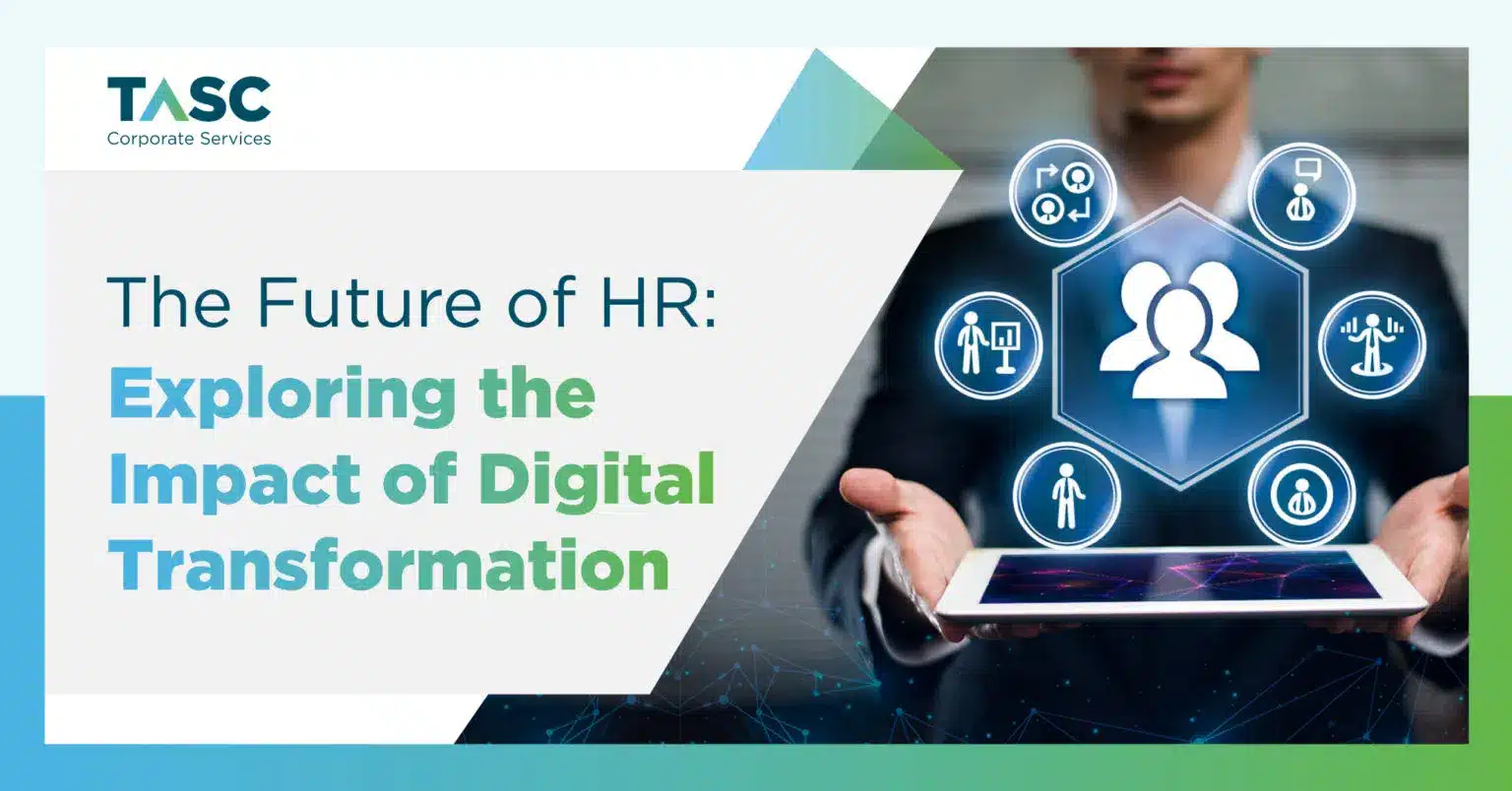The unemployment insurance scheme is a highly beneficial policy that supports residents working in the...
The landscape of Human Resources is undergoing a profound shift, thanks to the relentless march of HR in digital transformation. Traditionally, people associate HR with administrative tasks, recruitment, and employee management. On the other hand, the revolution of HR digitalisation has ushered in a new age for HR professionals, promising efficiency, agility, and strategic influence. Organisations are rapidly realising the importance of embracing HR digital transformation to remain competitive and react to changing workplace dynamics.
Understanding Digital HR Solutions: Evolution and Importance
Digital HR solutions encompass various technologies and tools designed to streamline HR processes. Initially, HR tasks were often manual and time-consuming, involving many paperwork and tedious processes. However, with the integration of digital technologies, the HR landscape has witnessed a significant shift. These innovations are reshaping the HR landscape from cloud-based platforms for talent acquisition to artificial intelligence (AI)-driven analytics. Here’s why they matter:
The evolution of digital HR can be traced back to the emergence of HR information systems (HRIS) and human capital management (HCM) systems. These systems paved the way for centralised data management, allowing HR professionals to access, update, and analyse employee information effortlessly.
As technology advances, cloud-based HR solutions entered the scene, offering scalability, accessibility, and flexibility. Cloud-based platforms enable HR professionals to manage HR processes remotely, facilitating a more agile and responsive approach.
Nowadays, digital HR solutions aren’t complete without artificial intelligence (AI) and machine learning (ML). These technologies empower HR teams to automate routine tasks. Whether it’s payroll processing, leave management, or performance evaluations, technology accelerates processes and reduces manual errors.
Empowering employees with self-service options reduces administrative overhead. From leave requests to updating personal information, these portals enhance efficiency and transparency.
Exploring HR Digital Services: Enhancing Efficiency and Productivity
As organisations embrace digital transformation, many HR digital services have emerged. Each service addresses specific challenges and streamlines the HR transformation process.
1. Recruitment and Onboarding
HR digital transformation has revolutionised recruitment, making it more efficient and candidate-centric. AI-powered tools assist in screening resumes, identifying top candidates, and even conducting initial interviews. It accelerates the hiring process and ensures a more objective and fair evaluation of applicants.
Onboarding, a critical phase for new employees, has also transformed. Digital onboarding platforms facilitate seamless integration by providing new hires with essential information, training modules, and interactive tools. It contributes to higher employee satisfaction and retention.
2. Performance Management
Traditional performance appraisals are evolving into continuous performance management with the help of HR digitalisation. Real-time feedback, goal tracking, and data analytics enable a more holistic view of employee performance. This shift toward ongoing feedback fosters a culture of continuous improvement and empowers employees to align their goals with organisational objectives.
3. Employee Engagement and Well-being
Employee engagement is vital to company performance, and HR digital services may help build a healthy work environment. From pulse surveys and sentiment analysis to personalised communication platforms, these tools provide insights into employee sentiments and enable HR teams to address concerns promptly. Additionally, digital well-being programs promote a healthy work-life balance, increasing employee satisfaction and retention.
4. Learning and Development
Employee development and organisational adaptation require ongoing learning. LMS platforms facilitate continuous learning and skill development. Employees can access training modules, certifications, and personalised learning paths, contributing to their professional growth.
It empowers employees to upskill and enables HR professionals to track and analyse learning metrics, ensuring a strategic approach to talent development.
5. Data Analytics and Insights
Current HR practices are centred around data-driven decision-making. Digital HR solutions harness the power of data analytics to provide actionable insights into workforce trends, employee performance, and organisational effectiveness. By leveraging predictive analytics, HR professionals can anticipate talent needs, identify potential issues, and devise proactive strategies.
Crafting a Digital HR Strategy: Aligning Technology with Organisational Goals
Recognizing the transformational power of technology is the first step in developing an effective digital HR strategy. Embracing advancements like Artificial Intelligence (AI), Machine Learning (ML), and data analytics empower HR teams to make informed decisions. Technology is the backbone of a modern HR approach, from automating routine tasks to predicting workforce trends.
Strategic Alignment: Integrating HR and Organisational Goals
A visionary digital HR strategy must be intricately linked to the organisation’s goals. Understanding the business objectives, growth aspirations, and cultural nuances is paramount. This alignment ensures that HR initiatives contribute directly to the company’s success and resilience in an ever-changing market.
The Role of HR Transformation Consulting in Digital Evolution
Navigating the complex landscape of digital HR transformation requires expertise and strategic guidance. HR transformation consulting plays a pivotal role of HR in digital transformation, acting as a catalyst for successful digital evolution within an organisation.
Strategic Planning and Roadmapping
HR transformation consulting brings a wealth of experience, enabling organisations to map a strategic journey towards digitalisation excellence. Through in-depth assessments and analysis, these consultants collaborate with HR teams to identify pain points, define objectives, and develop a roadmap for seamless digital integration.
Change Management and Cultural Shift
Implementing a digital HR strategy involves a culture transformation inside the business. Role of HR in digital transformation consulting is crucial in managing this change by fostering a culture of adaptability and continuous learning. They guide organisations through the intricacies of change management, ensuring a smooth transition for employees and leadership.
Optimising Technology Investments
The array of technology solutions available can be overwhelming. HR and digital transformation bring clarity by helping organisations choose and implement technologies that align with their unique needs. Whether implementing a new HRIS (Human Resources Information System) or optimising existing platforms, consultants ensure that technology investments contribute directly to organisational goals.
Digitalization in HR Practices: Reshaping Talent Management and Recruitment
Digitalization in HR practices has revolutionised the way organisations attract and acquire talent. From leveraging AI for resume screening to using predictive analytics for candidate assessments, digital recruitment enhances efficiency and ensures a more accurate match between candidates and job requirements.
Streamlining Recruitment Processes
One of the primary areas where digitalization in HR practices is making a significant impact is in the HR business transformation. Digital platforms enable HR professionals to streamline hiring, from sourcing candidates to conducting interviews. Advanced Applicant Tracking Systems (ATS) are now integral, efficiently managing resumes, automating communication, and providing data-driven insights to make informed hiring decisions.
Enhancing Candidate Experience
HR and digital transformation also create a seamless and positive candidate experience. Mobile-friendly applications, video interviews, and automated feedback mechanisms provide a more engaging and candidate-centric recruitment journey.
AI and Machine Learning: The Game Changers
Machine Learning (ML) and Artificial Intelligence (AI) are leading the digital transformation in HR. The traditional methods of hiring and managing talent give way to innovative approaches that leverage technology for greater efficiency and effectiveness.
When the UAE announced its Ministry of AI in 2017, it became the first nation to do so. This effort encouraged the application of AI in several contexts.
Predictive Analytics for Talent Acquisition
Predictive analytics powered by AI is employed in the HR transformation process by examining past data to find trends and forecast future hiring requirements. It ensures that firms have the necessary talent to fulfil changing business demands.
Personalizing Employee Development
HR in digital transformation extends beyond the recruitment phase into employee development. AI and ML algorithms may analyse individual talents, preferences, and performance data to design individualised learning paths, enabling continual professional growth suited to each employee.
Virtual Onboarding and Collaboration
Digital onboarding processes have become crucial in integrating remote employees seamlessly. From e-documents and e-signatures to virtual training sessions, HR tech ensures that new hires feel connected and ready to contribute from day one. Collaborative platforms and HR business transformation further facilitate communication and teamwork in a virtual environment.
Blockchain technology is also gaining traction in HR, particularly in verifying credentials and ensuring the integrity of employee records. It enhances security and simplifies the verification process during recruitment.
Cybersecurity in HR: Safeguarding Sensitive Data
Strict cybersecurity measures must be addressed as HR processes become increasingly digital. Protecting sensitive employee data is paramount to maintaining trust and compliance with data protection regulations.
Securing Employee Data
With the digitization of employee records, HR departments must invest in secure storage solutions, encryption protocols, and regular security audits. It instils confidence among employees regarding the handling of their data.
Compliance and Data Governance
Data protection rules and regulations must be followed. Digital HR platforms with compliance features ensure organisations stay on the right side of the law, avoiding legal pitfalls associated with data mishandling.
The Human Touch in Digital HR
Amidst the wave of HR in digital transformation, preserving the human touch in the practices is imperative. Technology should supplement, not replace, the human aspect of talent management.
Empathy in Employee Relations
While digital tools provide efficiency, empathy remains a cornerstone of effective HR management. Understanding employees’ unique needs and concerns requires a human touch beyond automated processes.
Personalised Communication
The digital transformation of HR enables personalised communication at a large scale. HR professionals can use data insights to tailor communication, ensuring that employees receive relevant information in a timely and meaningful manner.
Additionally, the emergence of virtual assistants and chatbots in HR services is redefining how employees engage with one another.
The Future of Digital HR
With evolving tech, the future of the digital HR model will be a game-changer. Virtual reality (VR), augmented reality (AR), and advanced analytics are poised to redefine how organisations attract, develop, and retain talent.
Virtual Reality in Training and Development
VR is anticipated to revolutionise employee training by creating immersive and interactive learning experiences. From on-the-job simulations to virtual workshops, HR will leverage VR to enhance the effectiveness of training programs.
Advanced People Analytics
Integrating advanced analytics tools will enable HR professionals to gain deeper insights into workforce dynamics. Predicting employee turnover, identifying performance trends, and optimising team structures will become more precise, aiding strategic decision-making.
Conclusion
In the chapters that unfold, let’s not forget that the true impact of digital transformation in HR isn’t measured solely in efficiency gains or data points. It’s measured in the smiles of a thriving workforce, the innovative spirit of collaboration, and the genuine care embedded in every interaction.






